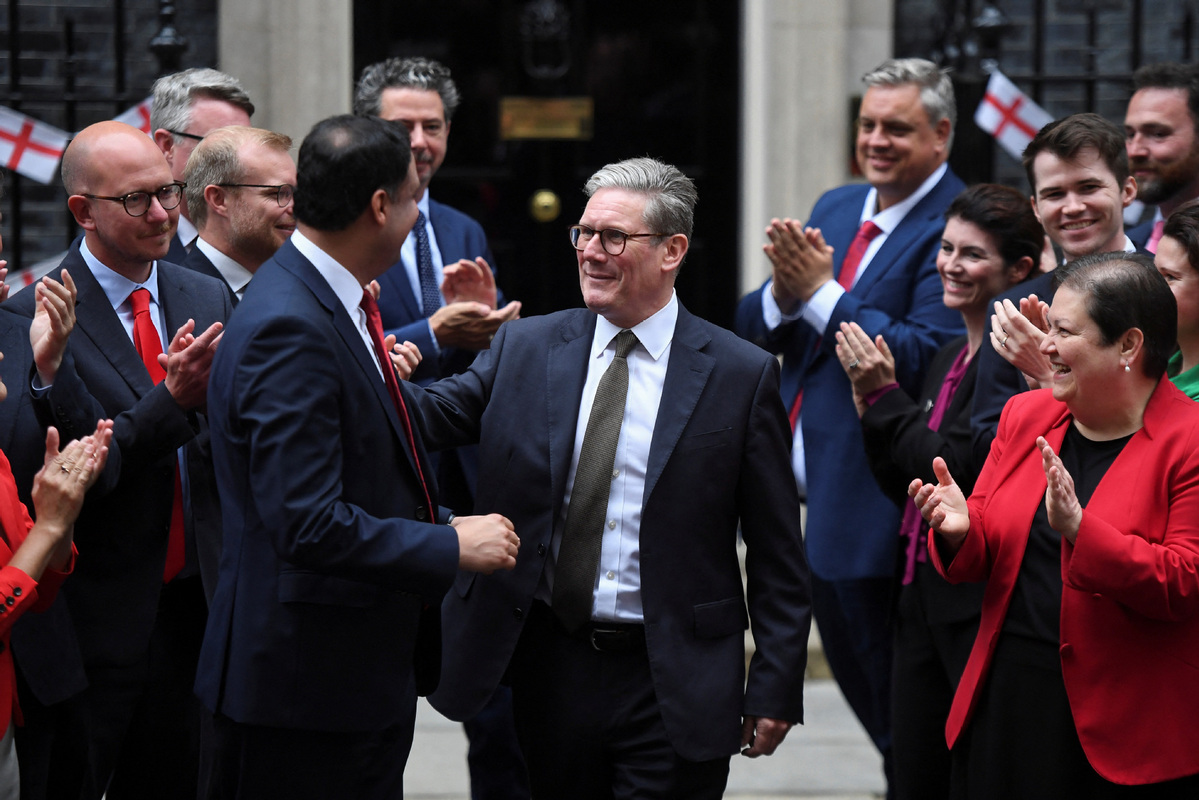Starmer seeks to turbocharge UK growth with legislative program


British Prime Minister Keir Starmer is likely to put growth center stage when the King's Speech, setting out the legislative program for the new government, is unveiled this week.
It will be the first time in more than a decade that a Labour Party government has been calling the shots. It is expected to focus on the core pledges that helped Labour win a majority of more than 170 seats at the recent general election.
"Our work is urgent. There is no time to waste. We are hitting the ground running by bringing forward the laws we will need to rebuild our country for the long-term," said Starmer.
"From energy, to planning, to unbreakable fiscal rules, my government is serious about delivering the stability that is going to turbocharge growth that will create wealth in every corner of the United Kingdom.
"The task of national renewal will not be easy... but the legislation set out at the King's Speech will build on the momentum of our first days in office and make a difference to the lives of working people."
Martha Lane Fox, president of the British Chambers of Commerce, said that "the smoke signals coming from our new government have been very encouraging so far in terms of its ambition and the direction of travel for business.
"We look forward to working with the government to… shift the economy out of first gear," Fox said.
"We're feeling positive that the voice of business has been heard and the government will introduce measures that benefit firms and help unlock investment.
"We want to work in partnership with the government to make this happen, connecting them with businesses of every size and sector across the country."
Businesses, she said, would be watching the speech closely "to see if the government's positive words translate into legislation and policy that can really make a difference to them."
The exact contents of the speech are kept secret, but it is expected that the pressing matter of immigration will also be addressed in a border security bill allowing people smugglers to be treated like terrorists.
Another eye-catching piece of legislation that will reportedly be included is reform of the House of Lords. Hereditary peers, who owe their presence in the chamber to their birth, with family lineage in some cases tracing back almost 1,000 years, are reportedly set to be abolished.
Currently, there are 274 Conservative members of the Lords and 168 Labour ones, in addition to non-aligned crossbenchers.
Most of these are life peers, appointed by party leaders, and removing hereditary ones would not only slim down the chamber, but also help redress its political balance.
Previously, Labour had spoken about replacing the chamber completely, but that is now thought unlikely to happen in the course of this parliament.

































